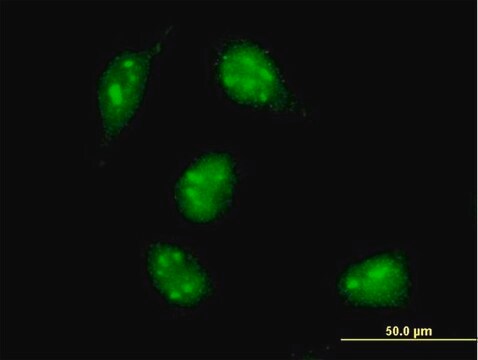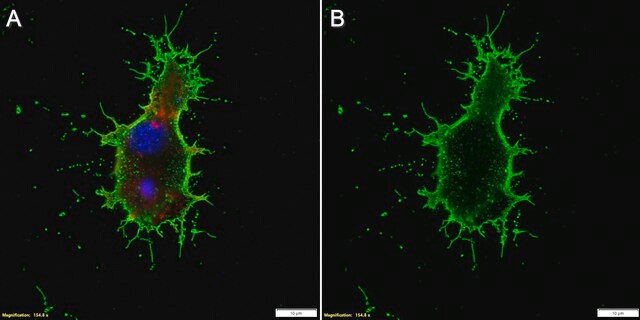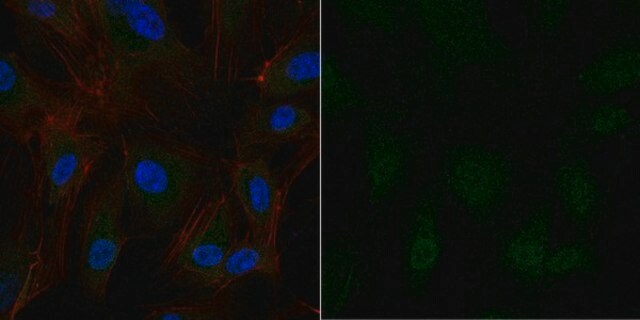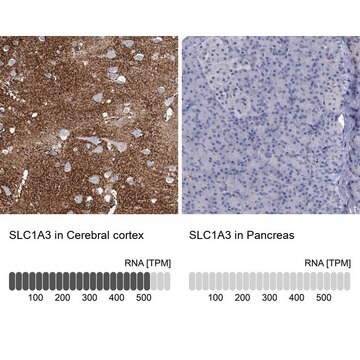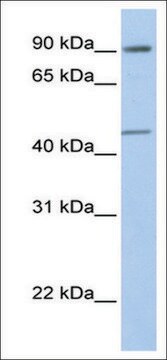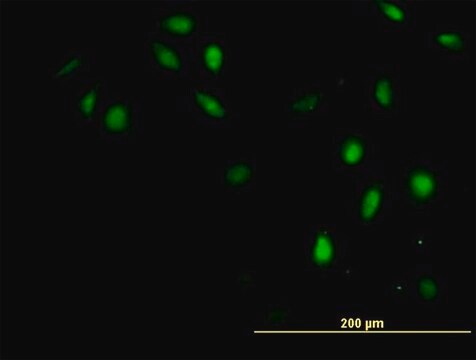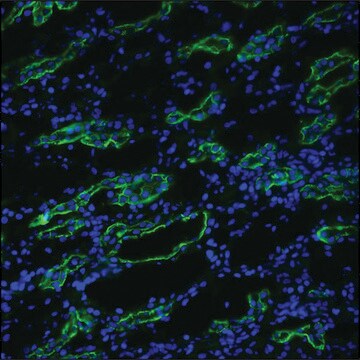General description
MyC associated factor X (MAX), Myc and Mad are basic helix-loop-helix leucine zipper transcription factors that bind to a specific hexanucleotide element of DNA, the E-box (CACGTG). Myc and Mad form heterodimers with Max to become active regulators of transcription. Myc:Max and Mad:Max heterodimers form higher order complexes that regulate a wide range of cell processes at the level of transcription. Myc:Max and Mad:Max dimerizations are regulatory control points for many myc and mad mediated cell processes.
Specificity
Anti-MAX polyclonal antibody reacts with human, mouse, rat, chicken, canine, and zebrafish myC associated factor X proteins.
Immunogen
Synthetic peptide directed towards the n terminal region of human MAX
Application
Anti-MAX polyclonal antibody is used to tag MyC associated factor X protein for detection and quantitation by Western blotting and in plasma by immunohistochemical (IHC) techniques. It is used as a probe to determine the roles of myC associated factor X in the regulation of RNA transcription especially in association with myc or mad transcription factors.
Biochem/physiol Actions
MAX is a member of the basic helix-loop-helix leucine zipper (bHLHZ) family of transcription factors. It is able to form homodimers and heterodimers with other family members, which include Mad, Mxi1 and Myc. Myc is an oncoprotein implicated in cell proliferation, differentiation and apoptosis. The homodimers and heterodimers compete for a common DNA target site (the E box) and rearrangement among these dimer forms provides a complex system of transcriptional regulation.The protein encoded by this gene is a member of the basic helix-loop-helix leucine zipper (bHLHZ) family of transcription factors. It is able to form homodimers and heterodimers with other family members, which include Mad, Mxi1 and Myc. Myc is an oncoprotein implicated in cell proliferation, differentiation and apoptosis. The homodimers and heterodimers compete for a common DNA target site (the E box) and rearrangement among these dimer forms provides a complex system of transcriptional regulation. Multiple alternatively spliced transcript variants have been described for this gene but the full length nature for some of them is unknown.The protein encoded by this gene is a member of the basic helix-loop-helix leucine zipper (bHLHZ) family of transcription factors. It is able to form homodimers and heterodimers with other family members, which include Mad, Mxi1 and Myc. Myc is an oncoprotein implicated in cell proliferation, differentiation and apoptosis. The homodimers and heterodimers compete for a common DNA target site (the E box) and rearrangement among these dimer forms provides a complex system of transcriptional regulation. Multiple alternatively spliced transcript variants have been described for this gene but the full-length nature for some of them is unknown.
Sequence
Synthetic peptide located within the following region: MSDNDDIEVESDADKRAHHNALERKRRDHIKDSFHSLRDSVPSLQGEKAS
Physical form
Purified antibody supplied in 1x PBS buffer with 0.09% (w/v) sodium azide and 2% sucrose.
Disclaimer
Unless otherwise stated in our catalog or other company documentation accompanying the product(s), our products are intended for research use only and are not to be used for any other purpose, which includes but is not limited to, unauthorized commercial uses, in vitro diagnostic uses, ex vivo or in vivo therapeutic uses or any type of consumption or application to humans or animals.
